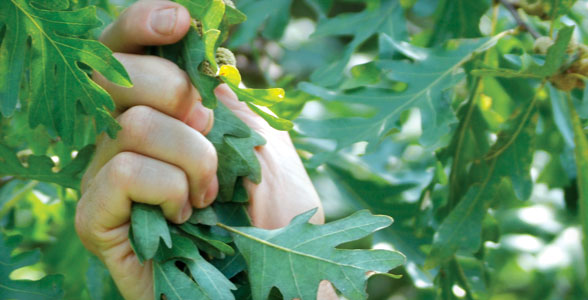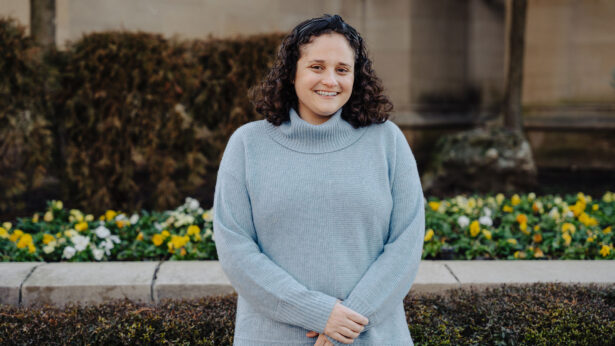By Margot Emery
The beautiful hardwood forests of the Mid-South may not look troubled now. But a host of stressors, from urban sprawl to invasive species, are taking their toll on economically important hardwoods and the wildlife that depend on them.
Fortunately, researchers from the UT Department of Forestry, Wildlife, and Fisheries—a unit of the Institute of Agriculture’s land-grant AgResearch division—are well on their way to improving hardwood values. Support from the Margaret Finley Shackelford Trust and the Ames Plantation in Fayette and Hardeman counties has helped them make rapid strides to establish a unique complex of hardwood seed orchards.
Nine years ago, forestry researchers began the daunting task of creating the hardwood seedling orchards that will eventually improve hardwood forests. A series of grants from the Shackelford Trust to Drs. Scott Schlarbaum and Allan Houston allowed the pair to begin collecting wild seeds from various hardwood species in Tennessee, Mississippi, and Arkansas. The seeds were planted at a state nursery and grown for one year. The resulting seedlings were used to establish genetic tests and planted on 90 acres of recently transformed prime agricultural land and additional acres of bottomland at Ames Plantation.
The new Margaret Finley Shackelford Seed Orchard Complex, named for the trust’s founder, is leading to production of locally adapted hardwood seedlings that are genetically superior for both nursery production and field performance. The species included in the complex are not exclusively for timber production, making the program unique. Species that provide food, called mast, and habitat for game and other wildlife are also being cultivated. Furthermore, working with molecular biologists at Notre Dame and Penn State, Schlarbaum and Houston have established mapping populations at Ames.
Although young, some of the orchards are producing small amounts of seed this year. The seed eventually produced by the Shackelford Orchards will be transferred to the Tennessee Division of Forestry’s State Nursery and grown to meet the needs of Tennessee landowners. Projects like a massive hardwood reforestation effort conducted along the Mississippi River by the Tennessee Wildlife Resources Agency will be beneficiaries, as well as the people of Tennessee. Some of the orchards are starting production this year.
“We have been extremely fortunate that the Shackelford Trust has been so generous in funding our research,” Schlarbaum says. “Because of their support, the UT Tree Improvement Program can take a holistic approach toward improving the forests of Tennessee, benefiting both industry and wildlife.”
Houston agrees. “Thanks to the trust, we have a great opportunity to be part of a project that entails all the components of research, natural resource management, and conservation.”
For more information on hardwood improvement, contact Dr. Scott Schlarbaum at 865-974-7993 or Dr. Allan Houston at 901-878-1067.



